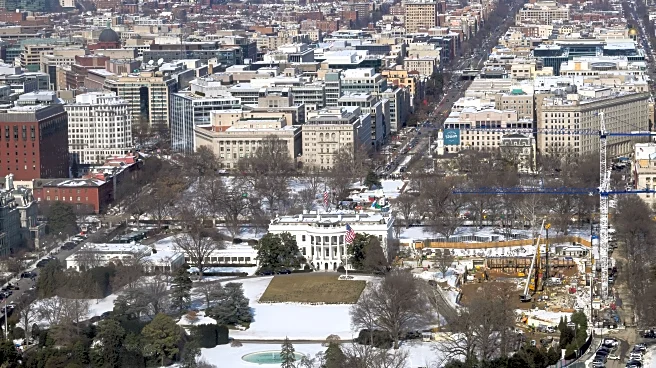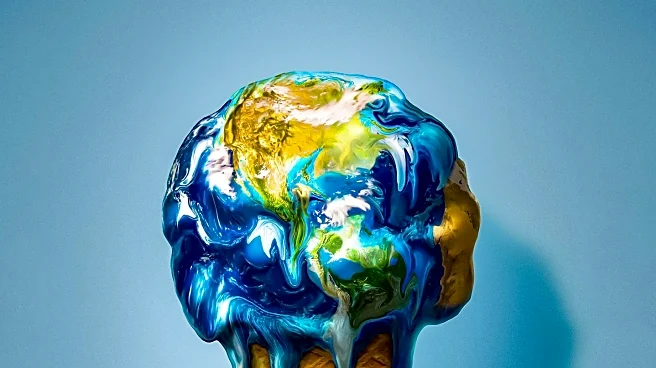What's Happening?
The Nobel Prize in Economics was awarded to three professors for their research on how technology and 'creative destruction' fuel economic growth. The winners include Joel Mokyr of Northwestern University, Peter Howitt of Brown University, and Philippe Aghion of the College of France. Their work highlights the role of innovation in driving economic growth and the importance of commercializing new technologies. The research emphasizes the need for safety nets for workers displaced by technological advancements and the significance of maintaining a competitive environment to foster innovation.
Why It's Important?
The Nobel Prize recognizes the critical role of technological innovation in shaping economic growth and improving living standards. The research underscores the importance of balancing innovation with social and economic stability, particularly in the face of disruptive technologies like artificial intelligence. The findings highlight the need for policies that support workers affected by technological changes and promote a competitive environment for continued innovation. The award reflects broader concerns about the impact of technology on economic conditions and the importance of fostering an open and dynamic economic environment.
What's Next?
The winners plan to continue their research on creative destruction and its implications for economic growth. The findings may influence policy decisions related to technological innovation and economic development. The ongoing advancements in AI and other technologies will remain a focal point for economic stakeholders. The role of trade policies and openness in driving economic growth will continue to be a critical consideration for policymakers.
Beyond the Headlines
The broader implications of the Nobel Prize include potential shifts in economic policy strategies and innovation-driven growth. The role of technological advancements in shaping economic conditions is significant, with potential implications for labor markets and productivity. The interplay between innovation, trade policies, and economic growth highlights the complexity of economic decision-making.










